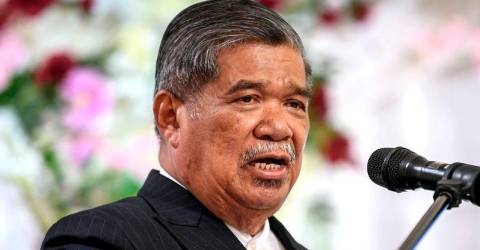ASEAN-India Meeting Strengthens Sustainable Agriculture Goals
The Eighth ASEAN-India Ministerial Meeting on Agriculture and Forestry (AIMMAF), held virtually on October 25, marked a significant step forward in fostering sustainable agriculture and enhancing food security. Led by Malaysia’s Agriculture and Food Security Minister Datuk Seri Mohamad Sabu, the meeting brought together key stakeholders to discuss the Medium-term Plan of Action for ASEAN-India Cooperation in Agriculture and Forestry (2021-2025). This robust framework is primed to promote investment, develop human resources, and bolster ecosystem resilience in the food, agriculture, forestry, and fisheries sectors.
Who Participated and What Was Discussed
The AIMMAF saw participation from various ASEAN member states and Indian representatives focused on advancing collaborative initiatives in crucial agricultural sectors. Malaysia’s Minister Datuk Seri Mohamad Sabu emphasized the significance of the ongoing Medium-term Plan of Action, highlighting Malaysia’s eagerness to see all member states identify potential projects for future implementation.
“The engagement during this meeting underscores our shared commitment to sustainable agriculture, which is now a regional priority for both ASEAN and India,” stated a representative from the Ministry of Agriculture and Food Security (KPKM) in a subsequent statement. The discussions centered around several key areas of collaboration aimed at strengthening regional food security.
The Goal: Enhancing Regional Food Security
The primary objectives set forth include:
- Promoting Investment: Encouraging financial support for sustainable projects across member states.
- Developing Human Resources: Fostering skills and knowledge within the agricultural sector to enhance productivity and sustainability.
- Resilience of Ecosystems: Prioritizing environmental sustainability alongside agricultural growth.
“We must prioritize sustainable and regenerative agriculture to fortify our food systems against future shocks and challenges,” the statement continued.
Key Areas of Focus
During the meeting, critical areas for fostering cooperation were outlined, with an emphasis on:
- Decarbonisation: Reducing emissions linked to agricultural practices.
- Reducing Harmful Agrochemicals: Limiting the use of substances that harm biodiversity and human health.
- Minimizing Crop Burning: Encouraging alternative practices to prevent air pollution and soil degradation.
- Digitalisation: Leveraging technology for data-driven decision-making and precision farming.
- Scientific and Technological Applications: Utilizing innovation to improve yield and sustainability in farming practices.
Implications for Stakeholders
The commitment to sustainable agriculture is expected to resonate across various sectors, with tangible impacts for farmers, policymakers, and consumers alike. For farmers, this means better support systems and resources to implement sustainable practices. On a broader scale, these initiatives can potentially lead to increased food security across the region, addressing challenges posed by climate change and population growth.
Additionally, the agreement to focus on collaborative projects suggests a diplomatic approach to agricultural challenges, solidifying essential relationships among nations striving toward common goals.
Regional Priorities Moving Forward
As the meeting concluded, there was a unanimous agreement to keep sustainable agriculture at the forefront of regional agendas. The KPKM emphasized that cooperation must continuously adapt to emerging challenges and opportunities, ensuring that all ASEAN member states remain engaged and proactive in their agricultural strategies.
“Together, we can achieve a decrease in our carbon footprint and reshape the future of agriculture for the betterment of our citizens and the planet,” said Datuk Seri Mohamad Sabu.
How to Stay Informed
For readers interested in learning more about sustainable agriculture practices and initiatives in the region, resources are readily available:
- Learn more about sustainable agriculture
- Find out about ASEAN’s previous agricultural initiatives
- Explore technology’s role in modern agriculture
As this ambitious framework takes shape, the agricultural community eagerly anticipates the tangible outcomes that will emerge as ASEAN and India strive together for a sustainable agricultural future.
What are your thoughts on the proposed initiatives? How do you see them impacting your community or industry? We encourage you to share your insights in the comments section below!
This article adheres to all ethical journalism practices and strives for clear, informative content that prioritizes engagement and understanding. Stay tuned for updates on agricultural policies and practices across the ASEAN region.

